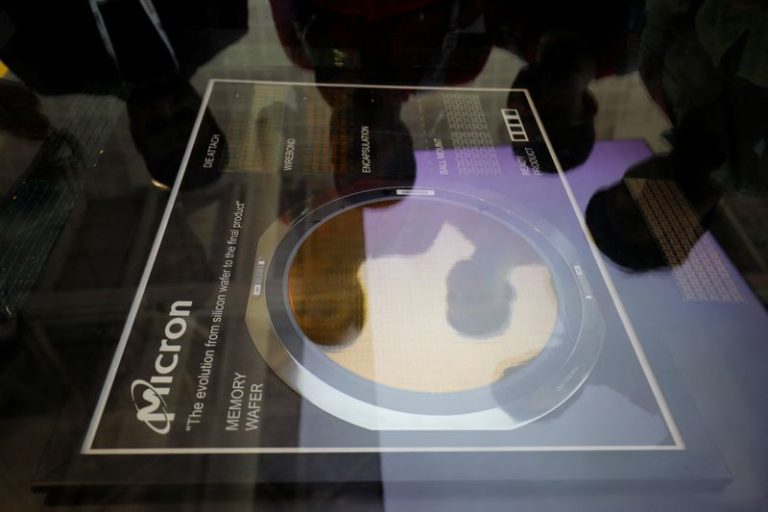By David Shepardson
WASHINGTON (Reuters) – The U.S. Commerce Department said on Tuesday it had finalized a $6.165 billion government grant for Micron Technology (UM) to produce semiconductors in New York and Idaho.
The financing will support Micron’s long-term plan to invest approximately $100 billion in manufacturing in New York and $25 billion in Idaho. This is one of the largest government grants awarded to chip companies under the $52.7 billion 2022 CHIPS and Science Act.
The new funding, $4.6 billion for New York and $1.5 billion for Idaho, is the same as the amount announced in April.
Separately, the department said it reached a preliminary agreement to provide Micron with up to $275 million in proposed funding to expand and upgrade its Manassas, Va., facility to help it introduce more advanced technology to United States and stimulate its platelet production.
The department said Micron’s investments will create about 20,000 jobs and help the United States increase its share of advanced memory chip manufacturing from less than 2% to about 10% by 2035.
Micron is working on a 1,400-acre mega campus to manufacture dynamic random access memory (DRAM) chips in central New York.
DRAM chips are key components in personal computing, automobiles, industrial operations, wireless communications and artificial intelligence, and Micron’s high-bandwidth memory is essential to enabling new AI models, the department said.
Micron CEO Sanjay Mehrotra said the award “will help drive economic growth and ensure the United States remains at the forefront of technological advancement.”
Micron shares were down less than 1% on Tuesday.
The White House said the investments will help “bring home critical technology that our defense industry, automotive sector, and national security community rely on.”
President Joe Biden’s administration finalized a series of grants, including a $7.86 billion allocation for Intel, $6.6 billion for Taiwan Semiconductor Manufacturing Co’s U.S. unit and $1.5 billion for GlobalFoundries.
The final awards come just weeks before President-elect Donald Trump, who has criticized the program, takes office.
(Reporting by David Shepardson in Washington and Deborah Sophia in Bangalore; editing by Shilpi Majumdar and Alexander Smith)


